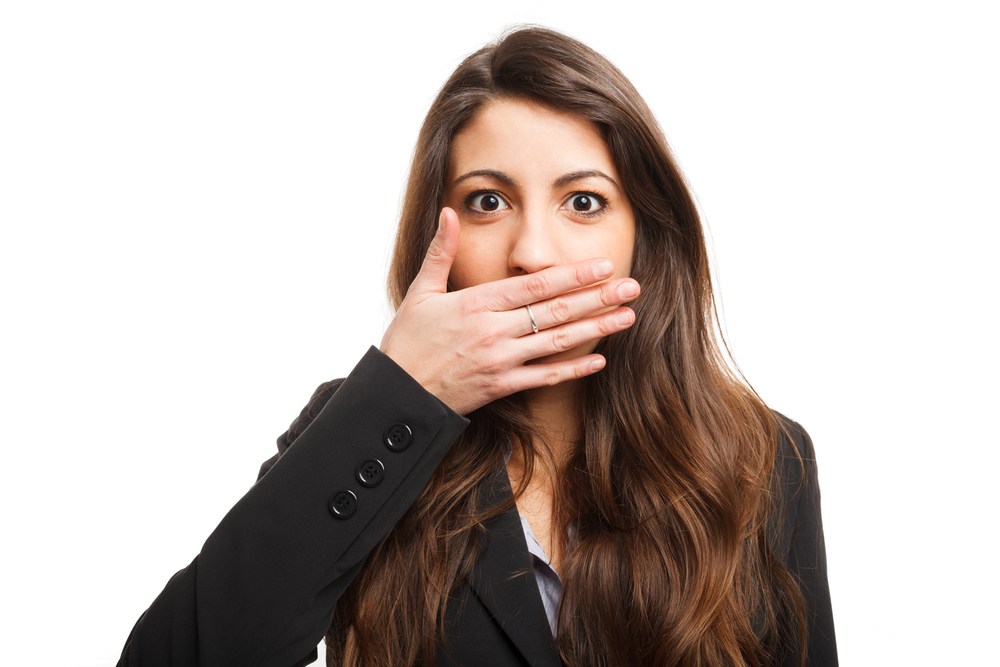Oral Health: Why do I have bad breath?
Image via Shutterstock.
Bad breath – what is it and how can you tell when you have it? Firstly, bad breath – also known as halitosis – is a condition where a noticeably unpleasant odour is present on the exhaled breath. It's estimated to be the third most popular reason for people to visit the dentist, with up to one in five people suffering from it to some degree. Bad breath may cause embarrassment in social situations, which can explain why our supermarket shelves and checkouts have packs of gum and mints slotted into every nook and cranny.
However, if you genuinely have halitosis, there is no amount of gum or dissolvable mints that will solve your problem as they only temporarily mask the smell.
It can be difficult to tell whether you have bad breath, as the odours will vary depending on the source of the problem. In some cases, people will have bad breath and live in blissful naïveté, while others will work themselves into chronic anxiety when they may not even have bad breath at all. If you're concerned, ask a friend, relative, or otherwise trusted third party to give you their consensus.
What next?
In the vast majority of halitosis cases, the cause is minor and can easily be resolved by adjusting your oral hygiene habits. Try incorporating any/all of the following changes to your lifestyle:
- Avoid dry mouth by drinking plenty of water – not coffee or soft drinks, which may encourage dry mouth. Chewing gum can also help with dry mouth.
- Brush your teeth after you eat, at least twice a day.
- Remember to brush your tongue. This is the most common location for bad breath bacteria, so gently brushing it while brushing your teeth may aid in reducing odours.
- Clean your dentures or dental appliances at least once a day.
- If you wear a retainer or mouth guard, clean it before you put it in your mouth. If you're not sure what to clean your mouth guard with, ask your dentist.
- Visit your dentist regularly – at least once or twice a year – to have your teeth examined and cleaned.
If you find that even after making these changes your bad breath is still persistent, see your dentist. They will examine the bacteria in your mouth and diagnose whether the bad breath is caused by dental hygiene or whether the root of your problem comes from other conditions.
Causes of bad breath
Bad breath can be attributed to one or more of the following causes:
- Food: Eating certain foods, such as onions, garlic and other odorous foods and spices may cause bad breath.
- Tobacco smokers: it comes as no surprise that smoking, as well as being bad for your overall health, causes an unpleasant mouth odour – one that is very distinct from bad breath made from other causes.
- Poor dental hygiene: Food particles may remain in your mouth after meals if you do not brush and floss your teeth, which may cause bad breath. Poor dental hygiene gives plaque the perfect breeding ground to grow and cause bad breath.
- Mouth infections: Bad breath may be caused by surgical wounds after oral surgery or as a result of tooth decay. In these cases, a visit to the dentist is required as simply improving oral hygiene will not be effective.
- Medication: Certain medications may indirectly cause bad breath by either contributing to dry mouth or releasing chemicals in your system that gets carried on to your breath.
- Stress/Anxiety
- Alcohol
If you have improved your dental hygiene and still feel like you cannot pin down the exact reasons for your halitosis, schedule in a date with the dentist. They will get down to the root of the problem and recommend you products to improve your dental hygiene further or refer you to a dental hygienist getting you on the road to fresh breath and self confidence.


